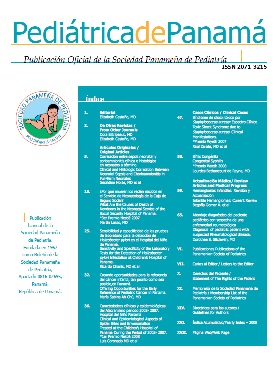The newborn free of routines. A proposal that prevails over time
[ The newborn free of routines. A proposal that prevails over time ]2020-11-09
Downloads
Keywords:
neonato, rutinasKeywords:
neonate, rutinesAbstract
“¿Dónde estoy? ¿Qué me está pasando? ¿Por qué hace tanto frío? ¡Qué hambre y que sed tengo! ¡Eso que me haces me duele! ¿En serio me tengo que despertar para bañarme?”Están deben ser algunas de las sensaciones que un recién nacido tiene una vez abandona la protección y la estabilidad del útero de su madre. Lo peor… nadie le preguntó su opinión sobre abandonar, incluso antes de tiempo (en el caso de los prematuros), su comodidad y confort. Si sumamos a este escenario una de las primeras y más frecuentes intervenciones de la rutina de atención del recién nacido, la separación del neonato del regazo de su madre, entendemos porque puede trastocarse, en un gran número de bebés, la transición fisiológica a la vida extrauterina. La consecuencia es la pérdida de la homeostasis y con ello la aparición de patologías evidentes o, quizás incluso con resultados más deletéreos a largo plazo, cambios sutiles a nivel del comportamiento o de su metabolismo.
¿Qué podemos hacer para minimizar el impacto negativo de la atención rutinaria de los recién nacidos?.
Abstract
"¿Where I am?¿ What is happening to me? ¿Why is it so cold? How hungry and how thirsty I am! What you make me hurts! Do I really have to wake up to bathe? "
There must be some of the sensations that a newborn has once abandons the protection and stability of his mothers uterus. The worst ... no one asked him his opinion about abandoning, even before time (in the case of premature babies), his comfort and comfort. If we add to this scenario one of the first and most frequent interventions of the newborn care routine, the separation of the newborn from the lap of his mother, we understand why the physiological transition to life can be disrupted in a large number of babies. extrauterine. The consequence is the loss of homeostasis and with it the appearance of obvious pathologies or, perhaps even with more deleterious results in the long term, subtle changes at the level of behavior or metabolism.
What can we do to minimize the negative impact of routine care of newborns?
License
Copyright (c) 2020 Infomedic InternationalDerechos autoriales y de reproducibilidad. La Revista Pediátrica de Panamá es un ente académico, sin fines de lucro, que forma parte de la Sociedad Panameña de Pediatría. Sus publicaciones son de tipo ACCESO GRATUITO y PERMANENTE de su contenido para uso individual y académico, sin restricción. Los derechos autoriales de cada artículo son retenidos por sus autores. Al Publicar en la Revista, el autor otorga Licencia permanente, exclusiva, e irrevocable a la Sociedad para la edición del manuscrito, y otorga a la empresa editorial, Infomedic International Licencia de uso de distribución, indexación y comercial exclusiva, permanente e irrevocable de su contenido y para la generación de productos y servicios derivados del mismo.






